#depends on how i feel
Text
Man, what if I drew a bunch of others ocs and mine together. Would that kill me? Probably. Would it be worthit ? Sure!
I’ll only be allowing 3 more ocs in before I close and work on the drawing
#I might do this#depends on how I feel#the pizzaman exists#if. anyone’s interested lemme know#for now I just do stuff
64 notes
·
View notes
Text
I’m bored, I can’t sleep, and I just realized I haven’t posted in a bit so have a bit of multiverse poker (2)
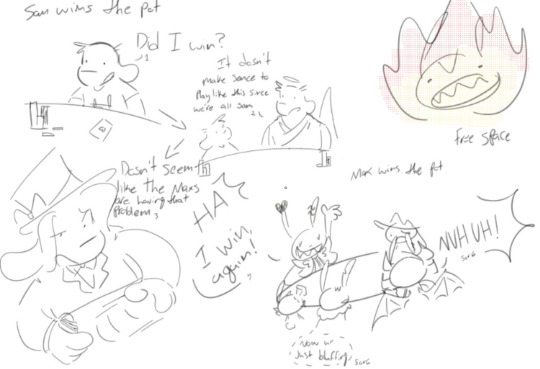
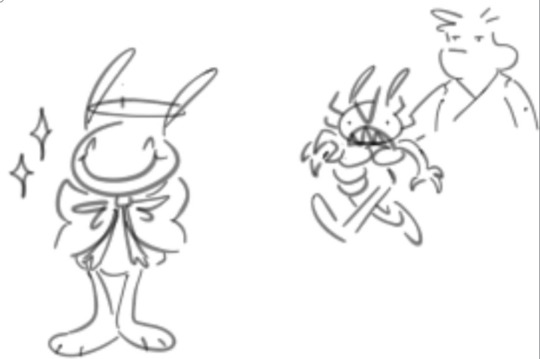
Multiverse poker 1&2 by @lizardtheartist
#sam and max#sam and max fanart#artoftheday#freelance police#snm#sam and max freelance police#freelance husbands#i need to go to sleep#I might play a little Time and space#or Mario cart#depends on how I feel
47 notes
·
View notes
Text
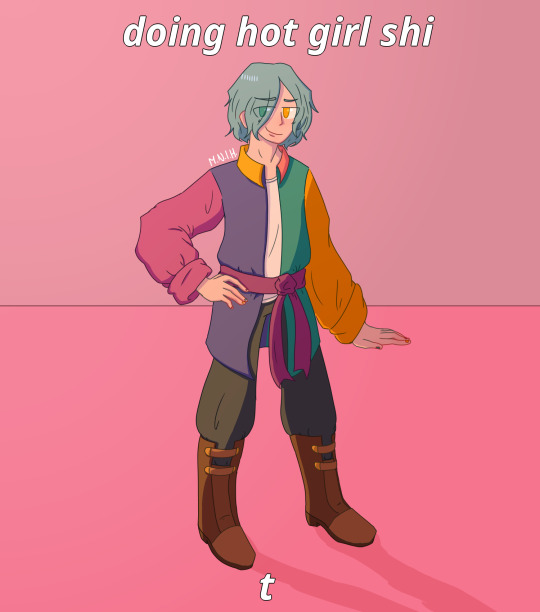
I don't know why, that's just what came into my mind today
Also, here's the version without subtitles and the original photo:


#scott smajor#empires scott#smajor1995#smajor fanart#meme redraw#fanart#that's literally all scott's skins ever#am I the only one who thinks that way????#empires scott fanart#empires s2#empires smp#be prepared for another smajor fanart by me#in maybe two days?#depends on how i feel#my art
279 notes
·
View notes
Text

Recovering from a car accident cjjdjx
So have a doodle of Choromatsu as Ragatha. Making crossovers make me happy :3
#might color later#depends on how i feel#choromatsu#tadc#crossover chaos#おそ松さん#mr osomatsu#osomatsu san#art i guess#the amazing digital circus
19 notes
·
View notes
Text
soon... ish? Not soon but soon.
Ya know... "soon."
#or maybe it *will* be soon#idk#it's up in the air really#depends on how i feel#:)#get y'all's rest tho#i don't wanna be responsible for missed sleep like last time 😔
187 notes
·
View notes
Text

look at them
I love Riverway <33
#be more chill#the squip#squip#squip x squip#riverway#next time I might include London Squip into the mix#or any other squip#depends on how I feel
7 notes
·
View notes
Text
hasn’t even been a week and I’m already missing this fandom lol, I even decided to rewatch a couple episodes to refresh my ed head.

in the future I would definitely want to come back and make a whole comic based on “No Speak Da Ed”, because Rolf based content is the best thing ever lol
#already miss my boys#especially rolf#maybe I should draw them again???#send me some drawing requests in my inbox if you want#I may or may not do them#depends on how I feel#ed edd n eddy#eene#eene rolf#ed edd eddy fanart
17 notes
·
View notes
Text
thinking abt writing a "5 times steve thought abt his gender + 1 time he talked abt it" fic w genderfluid steve. thoughts? ideas?
give me things to think abt !!! i want it to be six chapters but i dont have enough ideas for scenes and such !!! anything is welcome !!!
(its gonna be steddie and platonic stobin but mostly focus on steve and his gender)
#idk if ill post it yet#depends on how i feel#after i finish it#steddie fic ideas#steddie#stranger things#steve harrington#genderfluid steve harrington#genderfluid#fan fiction#5 + 1 things#5 + 1 fic#steve harrington hc#stranger things hc#stranger things headcanons#steve harrington headcanons#stobin#platonic stobin
63 notes
·
View notes
Note
Jesse in K

Aaaaand that's the last one for this round! :3
Prompt List
Also here's the dumb scenario I thought up for this-
Antonia: Jesse plsssss model this outfit for the school fashion zine!!! And then lemme take a pic for an article!!
Jesse: Fine, fine...it's not like I'm front cover material or anything. I doubt too many people will see it...
Antonia: Hmph, challenge accepted.
Jesse: What was that?
Antonia: NOTHING!
One Day Later-
Samantha: EVERYONE!!! THE SCHOOL SECRETARY IS ON THE FRONT COVER OF THE FASHION ZINE!!! AND HE'S HOT!!!
*chaotic screaming ensues*
Jay: ...Cole why are you destroying every zine copy you can get your hands on?!
Cole, in a gay panic + frenzy: I can't have the school shamelessly swooning over my boyfriend!!! Only I'M allowed to do that!!!
#ninjago#the lego ninjago movie#fuchsia ninja#ninjago oc#oc: jesse marvell#legacyverse#the ninja legacy whip#aftershockshipping#(in the read more lol)#art tag#my stuff#might put out a fresh prompt list tomorrow!!#depends on how i feel#but i like drawing outfits!!!
34 notes
·
View notes
Note
what do you eat for breakfast
either toast (with avocado or jam or just butter) or cereal or i just dont eat breakfast
#depends on how i feel#ive been eating breakfast more tho#aka my parents have been making me lol#breakfast#ask
4 notes
·
View notes
Text
Little guy maker
Such a cute website! I mean look,

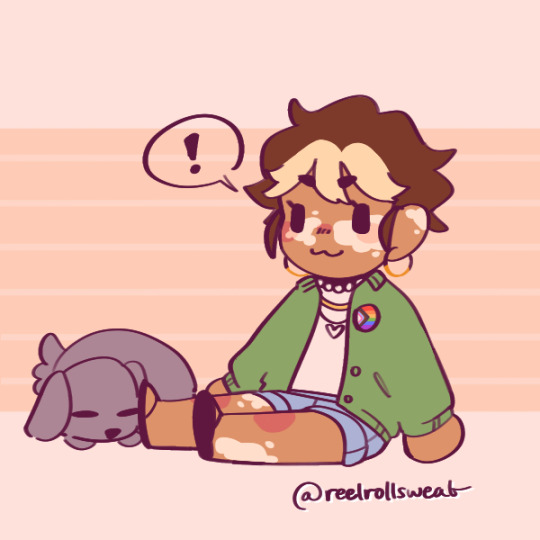
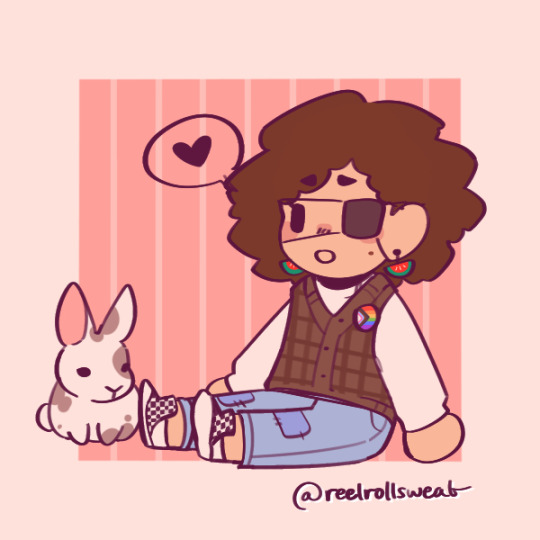
#so cute!#little guy maker#look at them#new to tumblr#i’m obsessed#i might post more later#depends on how i feel#lil bunny#puppy#plants
4 notes
·
View notes
Text
After watching “The Sea Beast” I got struck HARD with an idea of LMK Pirate Au! Featuring Wukong as our lovely captain. Although he just likes to be called as his name as is… the word captain, especially when others are referring to him… leaves a bitter taste in his mouth.
And I mean this just kinda hit me— I just needed to RELEASE THINE DESIRE TO FULFILL AN ACT OF ARTISTRY THAT MUST BE NEEDED— so it was a bit rushed
Pirate Au! Wukong = Serotonin/Dopamine levels 📈📈

𝐂𝐮𝐫𝐫𝐞𝐧𝐭 𝐇𝐞𝐚𝐝𝐜𝐚𝐧𝐨𝐧𝐬 𝐭𝐡𝐚𝐭 𝐈 𝐡𝐚𝐯𝐞:
[#1] — You know how Wukong’s home is called “Mount Huaguo” (Flower Fruit Mountain)? Well, instead, he called his ship “Huaguo Dian” (Flower Fruit Ship)
I’m so creative 😀……. …..🙂……. 😔 I tried
[#2] — You noticed that past tense? IM VERY PROUD OF YOU! Gold star :>, if you didn’t don’t worry when I reread it it took me a bit to realized that I put that there on purpose—
ANYWAYS, due to a certain bounty over his head from some of his “not so good lucky” pals at the Heavenly Empire, he was forced to serve on the “Dahua Xiyou” (Westward Journey— again im just that so so so talently creative)
Please note that the last sentence was sarcasm
[3] — After the events that had taken place on Dahua Xiyou (basically JTTW but in pirates and ship form) Wukong decides to keep the boat; continuing to have its name kept the same.
He misses them dearly.
And that’s all I have so far in Headcanons, feel free to share your own thoughts if you want (Like future crewmates, ship design, ship names for other crews, how things happen, your own scenarios, ect.) I’m just brainrotting currently in monkey man
#lego monkie kid#lmk fanart#monkie kid#lmk#lmk wukong#lmk sun wukong#sun wukong#lego monkie kid fan art#lego monkie kid sun wukong#Pirate Au! Wukong#Pirate Au! Sun Wukong#might make this a thing#probably…#maybe…#depends on how i feel#or depending if this is received well#we may never know
67 notes
·
View notes
Text
called out of work feel terrible abt it but my body can literally not do this today <3
#might skip class too idk#but I’m gonna have to go to campus anyways to pick up my sister so maybe I’ll just stay for class#depends on how I feel
3 notes
·
View notes
Note
ok... there is NO WAY you just left us to DIE while we wait!!!!! Oml i was waiting for the chapter with so much of... that and now its here!!! Wow. Any chance the next chapter is coming soon??? In all seriousness i love sdgl its awesome!!!
HEHEH i was smiling to myself as i hit post like god they’re gonna go insane over this LMAO i’m so glad u like it so far :))
i don’t plan on posting until wednesday bc i have plans with my mom this weekend and then plans with friends on monday and tuesday so have fun waiting LMAO
also i’m not telling u guys ANYTHING about future chapters unless it feels necessary anymore LMAO i’m gonna let yall stew in this for a while just bc i’m mean <3
#kags answers#feeling extra feral today#might take pity on yall tho some other day#idk#depends on how i feel
2 notes
·
View notes
Text
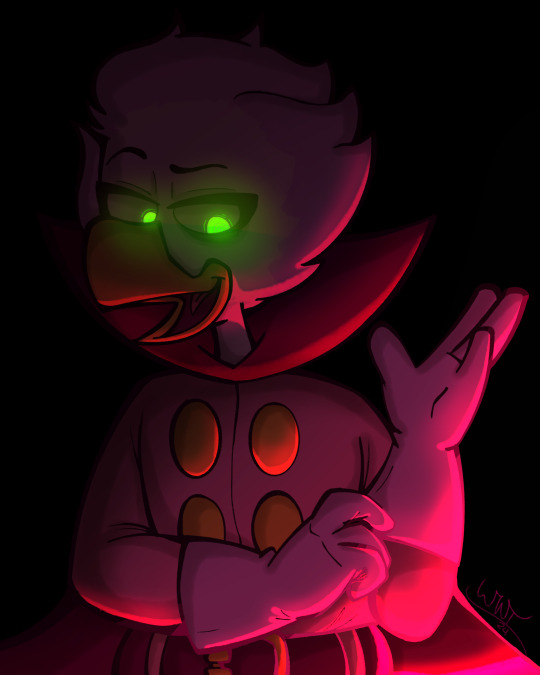
*Insert obligatory “Don’t worry, it won’t hurt… Not yet anyway” line here*

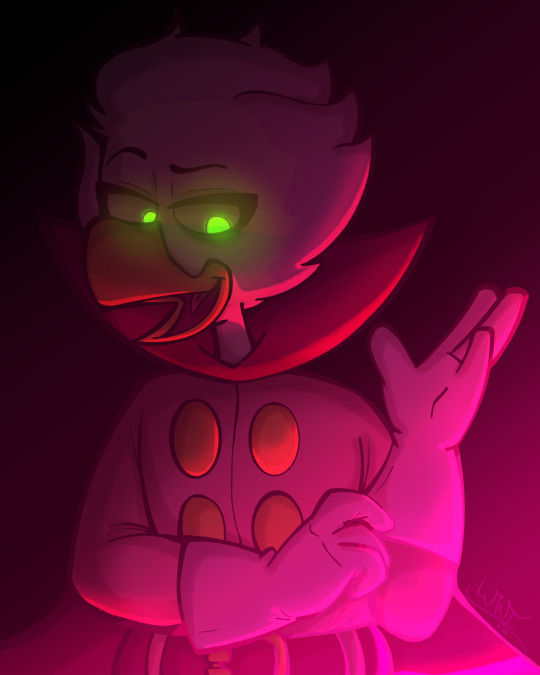
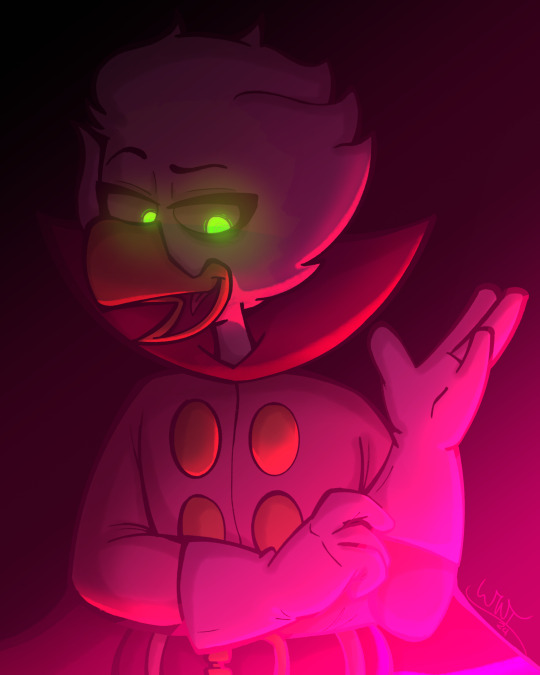

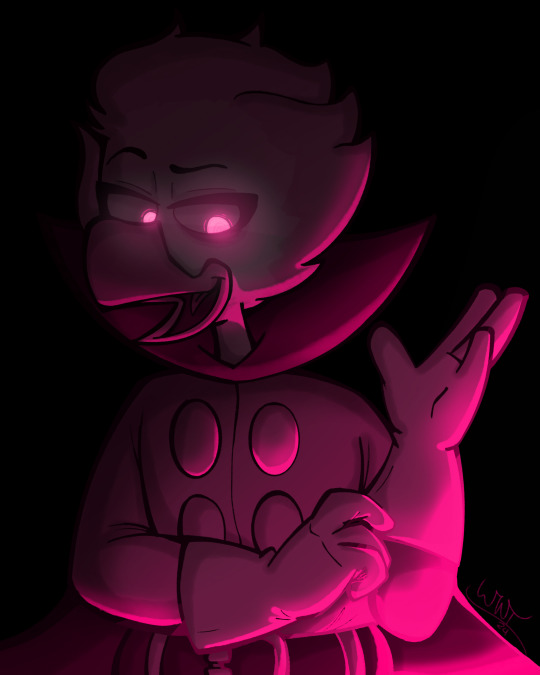
#heeeeeeeeemmmmmmz#Someone take dramatic lighting away from me I can’t not do this#ALWAYS WANTED TO DO A GLOVES ONE AND I FINALLY DID#Speedpaint with music coming tomorrow maybe???#Depends on how I feel#I would do it tonight but. I have to wait for SEVERAL things to load and I wanna go to bed so#That will not be happening#mad ducktor#duckverse#gyro gearloose#topolino#Wacky’s art
14 notes
·
View notes
Text
The Rest is Silence: Arden, Adaptation, and Narrative Stewardship
hey remember when i announced my intention to write an essay on arden and then didn't do it for two years because i was waiting for season 2B to come out and then... just kept not doing it? Well I finally wrote it and it's below the cut
i. Narrative Stewardship
Narrative stewardship is a term that you’ve never heard before because I invented it to describe who is entrusted with telling a story and when. It goes beyond just a matter of perspective or narrative voice, and specifically addresses in-universe instances of characters shouldering the responsibility of telling the story. And this can be varying degrees of explicit in terms of how it occurs.
One of my favourite less explicit examples of this is The World’s End. The film opens with narration from Gary, placing the story of the first golden mile firmly in Gary’s stewardship, and implicitly setting you up to think of the events of the movie from his perspective. However, it ends with narration from Andy, telling a group of people about the events of the film and retroactively applying his perspective to the story. The narrative has now passed into his care, and he is the one sharing it and bringing it forward. However, this switch isn’t the result of any explicit conversation that Gary and Andy have, nor does it directly represent that everything we’ve seen is something that Andy has been telling-- there are scenes that he just wasn’t there for, for one thing-- whatever version he tells the other people in the circle, it isn’t exactly what we’ve seen. The point is that the story of the first golden mile is in Gary’s care, and the second in Andy’s. In this instance, drawing attention to stewardship serves more of a thematic purpose in order to underscore the point that the movie is making about the past and how we interact with it.
For a more literal example, you can look at The Lord of the Rings. In-universe, the books that you read when you read The Hobbit and The Lord of the Rings are a translation of The Red Book of Westmarch, which was primarily written by Bilbo and Frodo, and that is finished by Sam. Frodo directly, in the story, tasks Sam with the work of writing the end, and there’s analysis out there that pinpoints where that shift happens to within a few lines.
So that’s narrative stewardship. It doesn’t always have to be defined by a shift from one character to another, and there’s a lot of other situations under which it can be applied, probably some that I haven’t even thought of, but that’s more or less what I mean when I use the term, and it’s a concept that I think about a lot when it comes up.
Arden interacts with the concept of narrative stewardship on a number of occasions, first and most obviously, in its format as a true crime podcast. Throughout season one, Bea and Brenda are telling the story of Ralph and Julie. They have not been entrusted with this story by the people it actually concerns, they have taken it on themselves, and they’re each doing it for different but similar reasons. Bea sets out to tell Julie Capsom’s story. Not just to share and find out what happened to her, but because of a connection she feels she has with Julie, and because she feels she has some responsibility or duty to be the one to say what happens. Brenda is there for Ralph. She barges in and kind of strong-arms her way onto the in-universe Arden podcast because she wants to make sure that Ralph’s end of the story is being done justice, and at the core of her involvement in the rest of the season is the desire to prove that Ralph isn’t to blame for Julie going missing.
Bea and Brenda each feel that they have some responsibility to one of the key players in the story of season one, and both feel they have some right to tell the story because of their initial involvement at the time, Bea as a reporter and Brenda as one of the police officers investigating Julie’s disappearance. And the story was public enough at the time and it’s been long enough that the rest of Wheyface, the public, and Ralph and Julie’s friends and family all just... let them proceed with that goal.
However.
Julie and Ralph don’t want their story to be told. They don’t even want to be the ones telling it, they left it unresolved with intent. So when they do step in and are all but forced to take over stewardship of their own story from Bea and Brenda, it’s an act of self defence almost. They don’t want to be doing it, but they need to in order to justify, or at least explain, their actions. Of course, in-universe “Episode 11: The Monsters Who Did It” doesn’t actually exist, but the in universe equivalent of this reluctant re-possession of their story is when Julie agrees to answer Bea and Brenda’s questions on mic when they find her. Of course, doing so means owning up to her past actions. In season one of Arden, narrative stewardship means responsibility. Julie’s responsibility for the crimes she committed in order to orchestrate her disappearance, and the responsibility of Bea, Brenda, and the rest of the Arden team for negatively affecting the lives of at least three people.
So of course for season two they change things up a little.
Dana Hamill wants her story to be told.
Dana Hamill wants her story to be told by the Arden crew, to as wide an audience as possible.
Dana Hamill wants the world to know what happened to her Dad and why the actions of her uncle and, to a lesser extent, her mother, should be considered suspect in the light of what happened.
The question of narrative stewardship shifts in season two. The matter of how one person’s memory of the past can differ from another’s, and how that affects how they tell the story of what happened comes up directly a number of times-- Dana’s impression of her father as compared to those of Trudy and Clyde, Dana and Olivia’s differing perspectives on their past relationship, the different things that Bea and Brenda take from their initial interactions in 2007 and how that effects their present relationship... But the most noteworthy places for our purposes are the shift in the form that the podcast takes, and one Rosalind Ursula.
The Arden team is aware that, after the disaster that was the end of season one, they need to be more careful with how they approach season two, and as a result the episodes that we are hearing are not at all what the in-universe podcast, A Town Called Elsinore, actually consists of. So while Bea and Brenda are trying to tell Dana’s story, we aren’t just getting their version of that story. Moreover, their perspective on what the story is that they are telling is very different from Dana’s perspective on the story she wants them to tell. They are more aware of the possible consequences of taking responsibility for telling this story, and so they are more wary of fully doing so.
Which... brings us back to Rosalind.
Rosalind takes her first name from the main character of As You Like It, a character who would definitely, 100%, no doubt, get along with Hamlet so very well that one of my main takeaways from this podcast is turning over that possibility in my mind. Her last name, Ursula, is a nod to a minor character from Much Ado About Nothing, which ties her into Brenda and Bea as reimaginings of Benedict and Beatrice, but other than that doesn’t have much of a bearing on her character. Like, she’s not an adaptation of Ursula in any form. And it's interesting to note that she is one of the few characters in the podcast who is based on a Shakespeare character, but who is brought in without bringing in other elements of the play from which they are is taken. The only other contribution As You Like It has made to Arden is the title, but even that is more strongly connected to the real-life forest of Arden near Shakespeare’s home town than it is the fictional Arden in As You Like It’s France. Even Andy Wheyface is actually surprisingly similar to Andrew Aguecheek what with his willingness to throw his money around and comedic attempt to get married with vague motivations as to why he actually wants to, though that is retained without importing much else from Twelfth Night. The only other Twelfth Night reference being Malcolm Volio in season one.
But Rosalind! She does bear a similarity to her Shakespearean namesake in terms of character, but not at all in terms of role. And the fact that she has been taken so entirely out of her original context essentially gives her leeway to be a more flexible character for the writers while still maintaining a connection to Shakespeare. And what the writers do with that... is make her Horatio.
I can still remember listening to season two for the first time, and realizing that Rosalind was going to be acting as Horatio and... I think I literally got goosebumps? Because Horatio... Horatio is the person who has stewardship of the story of Hamlet. Hamlet entrusts him, at the end of the play with the task of telling this story. In the world of Hamlet, the only way that the story of all of death and tragedy-- the “carnal, bloody, and unnatural acts”-- gets told, is because of Horatio. And we know that he does tell it, at least once, to Fortinbras, when he shows up at the end of the play.
Dana gets Rosalind to tell her story. She contacts Arden generally, but Rosalind is the one who does the groundwork of flying out to Montana and looking into Dana’s story in preparation for the in-universe season 2. And as a result of befriending Dana, Rosalind is swayed to her perspective on events, and becomes the only person on the Arden team advocating for the version of the story that Dana wants them to tell. This interacts with some other aspects of adaptation in some ways that I’ll get to in a moment, but first and foremost it makes her... a really good Horatio. By which I mostly mean it makes her a very Horatio Horatio. She really takes her responsibility as the steward of Dana’s story, as the person entrusted with her version of events, very seriously. To Rosalind, this is Dana’s story-- much as in season one Bea saw the events as Julie’s story almost to the exclusion of Ralph-- and so, first and foremost, Rosalind sees Arden’s responsibility in telling the story doing right by Dana. At least until she realizes that she's gotten too close to Dana and comes clean to the rest of the crew about the gaps in Dana’s story.
Season two asks questions about the role of objectivity in narrative stewardship, because if someone asks you to tell their story-- the story of what happened to them, and what they did, what happens when that conflicts with just telling the story of what happened?
ii. Adaptation and Narrative Tension
Arden isn’t fully an adaptation. Partially because it’s got so much original stuff that there are whole storylines that can’t be found in Shakespeare, but partially because it’s never a straight-up retelling of any of the plays that it takes on. There’s always enough distance from Shakespeare’s actual text, story, and themes that despite the obvious influence, it also stands on it’s own as a new version of an older story.
Which is actually very in line with how Shakespeare approached his plays. With very few exceptions, (Love’s Labour’s Lost, A Midsummer Night’s Dream, Merry Wives of Windsor, and The Tempest) they're all based on existing stories or historical events. Some plays are the result of combining two stories, and faithfulness varies greatly between different plays, but in general, Shakespeare plays aren’t original. They’re just really good at standing on their own.
But none of Shakespeare’s plays are mysteries. There aren’t really twists or reveals. Villains tell the audience what they’re up to, the Chorus synopsizes events for you before they happen, foreknowledge of the ending will not in any way hamper your enjoyment of the story. So Arden is actually given a very difficult task in terms of adapting stories that everyone knows into a true crime format where the reveal of what happened and who did it needs to actually hold some weight. That approach to adapting the plays essentially requires a genre shift, because the aims of a mystery are directly at odds with the aims of the kinds of tragedies that Shakespeare wrote. And the really amazing thing is how it’s done differently in the two seasons.
Everyone knows how Romeo and Juliet ends. The prologue of the play tells you how it ends just in case you didn’t know. And, listening to season one of Arden, you already know what happened to Ralph and Julie, because you know they’re Romeo and Juliet. Well. You should know they’re Romeo and Juliet. You might not know the details, but you know they’re dead, and you know they died together. Season one relies on that foreknowledge to keep both the real-world audience and the in-fiction audience engaged. Even if you somehow managed to miss the fact that Ralph Montgomery and Julie Capsom are Romeo and Juliet, in-fiction, everyone making and listening to the show knows what happened to Julie Capsom. All that blood? The crashed car? She for sure died. They just don’t know how.
So, when the twist is revealed and it turns out that they’re not only not dead, but still together? And thriving? You, like the in-universe are surprised by it! It’s like. Undoing any dramatic irony that existed in the original.
Also, if you’re me, you’re kind of more emotionally affected by that twist than you are by the original ending. Because you were prepared for them to be dead, gosh-darn-it, you were prepared for that because you’ve had years to accept it-- but for them to be alive and happy? You wrote a story where they’re ALIVE and HAPPY?? How dare you. How dare you change their fates and show me what could have been, because now the fact that this story has ended in death for four hundred years is sadder.
Anyway.
Season two, builds on that. Season two is an elevation of season one in pretty much every way, honestly, and with that comes an even further departure from the source material and a more deliberate obfuscation of what an audience expects from Hamlet. Because in order for the mystery to sustained in a manner which fits a story of an investigation, we can’t have our Hamlet given concrete knowledge of the culprit, heard from the murder victim, right at the start of the story. Yes, in Hamlet, Hamlet has his doubts about the information that the ghost gives him and that’s part of why it takes him a while to kill Claudius, but the audience doesn’t really have their doubts. We know. Both because of the narrative itself, and because Hamlet is, um. Very famous.
So, Arden season two lacks a clearly articulate ghost describing his murder in detail. The listener is still predisposed to suspect Clyde because they have read or seen or are at least culturally aware of Hamlet, but that suspicion is shaken by remembering that they changed how the story went in season one, so... who knows what could happen. And the further season two of Arden departs from the source material, the less sure you you can be of who’s going to make it out okay.
And this is an amazing exercise in getting you to think about the story differently, because the way Hamlet is written-- giving an audience knowledge as to what Hamlet it doing and why, by showing us his interaction with the ghost-- makes Hamlet’s actions and the fact that he suspects Claudius the way that he does more or less make sense to us in a way that it doesn’t to the majority of the characters. We know that he has his reasons for all of the weird stuff he’s doing, and even if you don’t agree with how he goes about it, you’re still able to see the justification in it. To the other characters in the play-- with the notable exception of Horatio-- his actions are absolutely wild, and Hamlet’s entire plan relies on that.
In Arden, we’re not following Dana directly. We’re following her via Bea and Brenda’s investigation, and that investigation is also following all of the other major players in the town. That shift in how we are presented with our Hamlet figure removes the perspective of knowing who (probably, if ghosts are to be believed) dunnit, even if some shadow of it is still there because of cultural knowledge of Hamlet. It’s basically asking you to relate not to Hamlet, but to Claudius and Gertrude and Ophelia and Polonius-- all the people who are worried about just what Hamlet is up to and that... that is an amazing trick to pull off.
Let’s go back to Rosalind and Horatio. Because Horatio is actually monumentally important to the audience’s understanding of Hamlet as a person for much of the play, and Arden puts that into a much sharper focus by having Rosalind literally trying to shape what the in-universe audience hears of Dana and the story, to the point of deleting footage that might incriminate Dana and interfering with Brenda and Bea’s investigation. Horatio is tasked by Hamlet with telling his story, and Arden asks us to question the ethics of that in the framework of true crime, as well as asking us to question Horatio’s objectivity. It’s asking “but what if Hamlet wasn’t right? What if Claudius didn’t do it?” and that... I don’t even know what to do with that.
Now, no discussion of our access to Dana’s inner thoughts and motivations would be complete without the matter of the soliloquies. In Arden, the soliloquies are fantastically adapted into Dana’s songs. They serve the same purpose as a soliloquy in that they give us some insight into Dana’s thought process, but they also emphasize the element of performance that is at play in Dana’s actions. Performance is such a big part of Hamlet’s actions, in the play. There’s a really amazing ambiguity to just how much of his actions are performance and when he’s performing and when he isn’t that can vary from production to production. Is Hamlet aware that Polonius and Claudius are spying on him during “to be or not be”, for instance. Some of Dana’s songs happen in more private moments-- “Show ‘Em I Mean Business”, arguably “Watch the Fire”-- but most of them are in public, drawing the audience’s attention to the fact that, while Dana’s emotions about her father’s death and the ensuing situation are genuine, on some level she is still performing. And when and how she is performing, not to mention for whom, is immensely interesting.
iii. Conclusion
In the commentary episode for season 2, episode 6, Christopher Dole expresses the aspect of true crime ethics that Arden explores as "who has the right to tell another person's story? [...] And what is the storyteller getting out of choosing this story?" While these questions are of course relevant to questions of true crime, I think they also have bearing over the matter of adaptation, and the matter of theatre. Theatre is unique in that the exact same story, the same script, gets told over and over in many different forms, with different actors and blocking and set and what have you. Shakespeare, as the meeting point of theatre stories that have had cultural relevance for a long time, is a nexus of two forms of repeating and retelling the same story. Arden, both in the act of adapting and retelling Shakespeare, and in the way it chooses to adapt and retell Shakespeare, asks questions about how we frame narratives, who gets to tell stories, and what stories are chosen to be told.
#arden#arden podcast#these are not all of my arden thoughts#not even close#they are just the arden thoughts that need to be fully articulated because they've been bouncing around my head as fragments#i'm also gonna make this into a video#but editing takes time so i'm posting this as is and i'll post a link to the video when it's done probably#depends on how i feel#you might just get the written version idk#anyway....#words#a lot of words#podcast#meta#analysis
45 notes
·
View notes